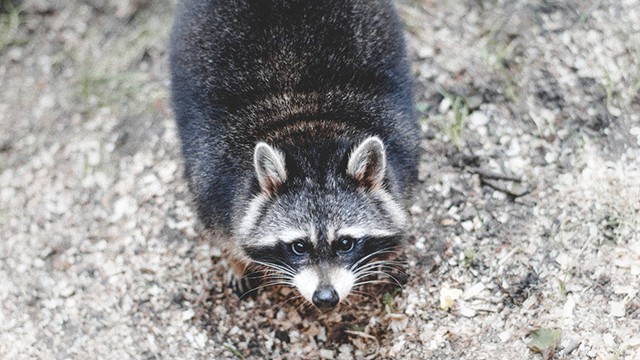Rabies Reported in Burlington
Published July 20, 2017 at 1:04 pm

New cases of raccoon strain rabies are being reported in Burlington, say public health officials, who are urging residents to avoid wild animals in the region.
New cases of raccoon strain rabies are being reported in Burlington, say public health officials, who are urging residents to avoid wild animals in the region.
“Anyone who comes in physical contact with a raccoon or other wild animal should see a physician immediately and contact the health department by calling 311,” said Halton Region’s acting Medical Officer of Health Dr. Daniela Kempkens.
“Halton Region has seen an increase in the number of rabies cases over the last two years and we want residents to be aware of rabies and know how to protect themselves”.
Test results from the Canadian Food Inspection Agency confirm additional cases of raccoon strain rabies in Burlington.
Raccoon strain rabies were reported in three raccoons and one skunk found in the City of Burlington on July 6.
Halton’s health department has received positive reports for 11 raccoons and seven skunks and is reminding residents to avoid all contact with raccoons, skunks and other wild animals.
Several cases were found in the Hamilton area in 2015.
Rabies is a viral disease that causes severe damage to the brain and spinal cord, and if untreated before symptoms appear, will lead to death.
The virus is spread through the saliva of an infected animal, usually entering through a bite or scratch.
Here are some tips to protect your family and pets:
- Seek medical attention immediately if you come in contact with a raccoon, skunk or other potentially rabid animal.
- Report all animal bites or scratches to the Halton Region health department.
- Warn your children to stay away from any wild, stray or aggressive animals.
- Do not feed or keep wild animals as pets.
- Do not touch dead or sick animals.
- Make sure your pet’s rabies vaccinations are up to date.
- Keep your pet on a leash when off your property.
- Have your pet seen by a veterinarian if it has come in contact with a raccoon or other wild animal.
(Source: Halton Region)
For more information on rabies or to learn about positive raccoon rabies results in Halton, click here or phone 311.
insauga's Editorial Standards and Policies advertising





